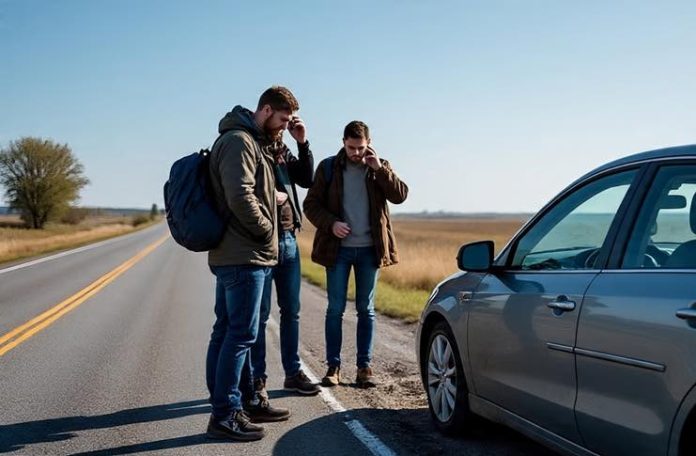
After a car accident while on a trip, dealing with the insurance company can feel just as stressful as recovering from injuries or getting your rental vehicle repaired in an unfamiliar place. Your bills start to pile up quickly, your plans are derailed, and the first settlement offer you receive may not be enough to cover the full extent of your damages. In this post, as part of our general travel tips, we’ll explore what you need to know about car insurance from a traveler’s perspective.
Insurance companies are businesses, and their goal is to settle claims for as little as possible. But that doesn’t mean you have to accept their first number. By approaching the process strategically, with a good lawyer at your side, you can greatly improve your chances of receiving a settlement that reflects the true value of your claim.
Build Your Case With Strong Documentation
A fair settlement starts with evidence. From the moment of the accident, whether it’s in a rental car or your own, collect as much information as you can. Photos of the crash scene, vehicle damage, details about weather conditions, and visible injuries can be invaluable for building your case. If there are witnesses, get their statements and contact information, and of course, police reports also play a key role in establishing facts, so make sure to get one.
That said, evidence collection doesn’t end at the scene. Keep detailed medical records, receipts for prescriptions, and notes from every doctor visit, even if you are out of the country. Document time missed from work and any expenses related to the accident, including lodging costs, re-booked flights, or new transportation to appointments. The clearer the record is, the harder it is for an insurer to argue your claim down.
Watch this video for more useful tips:
Know the Full Value of Your Claim
Many people underestimate what their case is worth because they focus only on immediate bills, while a true assessment includes not just current expenses but also future costs. Will you need ongoing physical therapy when you return home? Has your ability to work changed? Are you likely to face long-term pain or disability?
Non-economic damages, such as pain and suffering, also factor into many settlements. These damages may be harder to calculate, but they reflect real harm. By having a comprehensive understanding of both economic and non-economic losses, you position yourself to demand a settlement that covers the full scope of your injuries.
Communicate Carefully With Adjusters
Insurance adjusters often seem friendly, but their job is to minimize payouts. They may ask leading questions or try to get you to make statements that can be used against you later. Even casual remarks like “I’m feeling better” may be collected and then twisted to suggest your injuries aren’t serious.
Stick to the facts when speaking with an adjuster, and never speculate about fault or medical conditions. If possible, allow your attorney to handle communications exclusively. That way, you can avoid unintentional missteps that could weaken your claim.
Don’t Jump at the First Offer
The first settlement offer is almost always a starting point, not the final number. Insurance companies count on accident victims being eager to resolve claims quickly, especially if financial stress from being on a trip is mounting. But accepting too soon often means leaving money on the table. Review every offer carefully, compare it to your documented damages, and remember that negotiation is part of the process. With persistence, you’ll likely be able to secure significantly more than the initial offer.
Use Professional Support to Your Advantage
One of the strongest ways to improve your settlement is to work with an experienced personal injury lawyer, as attorneys understand insurance company tactics and know how to counter them effectively. They can calculate the true value of your claim, gather expert testimony, and negotiate from a position of strength.
Be Patient With the Process
Negotiations take time, and insurance companies may deliberately stall to pressure you into settling. While it can be frustrating to wait, especially when you want to get on with your trip, patience is often key to maximizing your settlement. Quick resolutions tend to favor insurers, while carefully built claims backed by strong evidence favor victims.
That doesn’t mean dragging things out indefinitely is always a good move, however. The goal is to balance persistence with realism, making sure you don’t accept too little too soon but also avoiding unnecessary delays that create stress.
Recognize When a Trial May Be Necessary
Although most car accident cases settle out of court, litigation may sometimes be the only path to fair compensation. If an insurer refuses to negotiate reasonably, you can file a lawsuit to signal that you’re serious. Even the mere threat of trial often motivates insurers to improve their offers, since court cases bring added costs and risks for them.
Getting a Better Offer
Securing a better settlement from a car insurance company doesn’t boil down to luck. It’s a byproduct of preparation, persistence, and strategy. By documenting your damages thoroughly, understanding the true value of your claim, avoiding common communication pitfalls, and working with a skilled attorney, you can put yourself in the strongest position to receive fair compensation.









